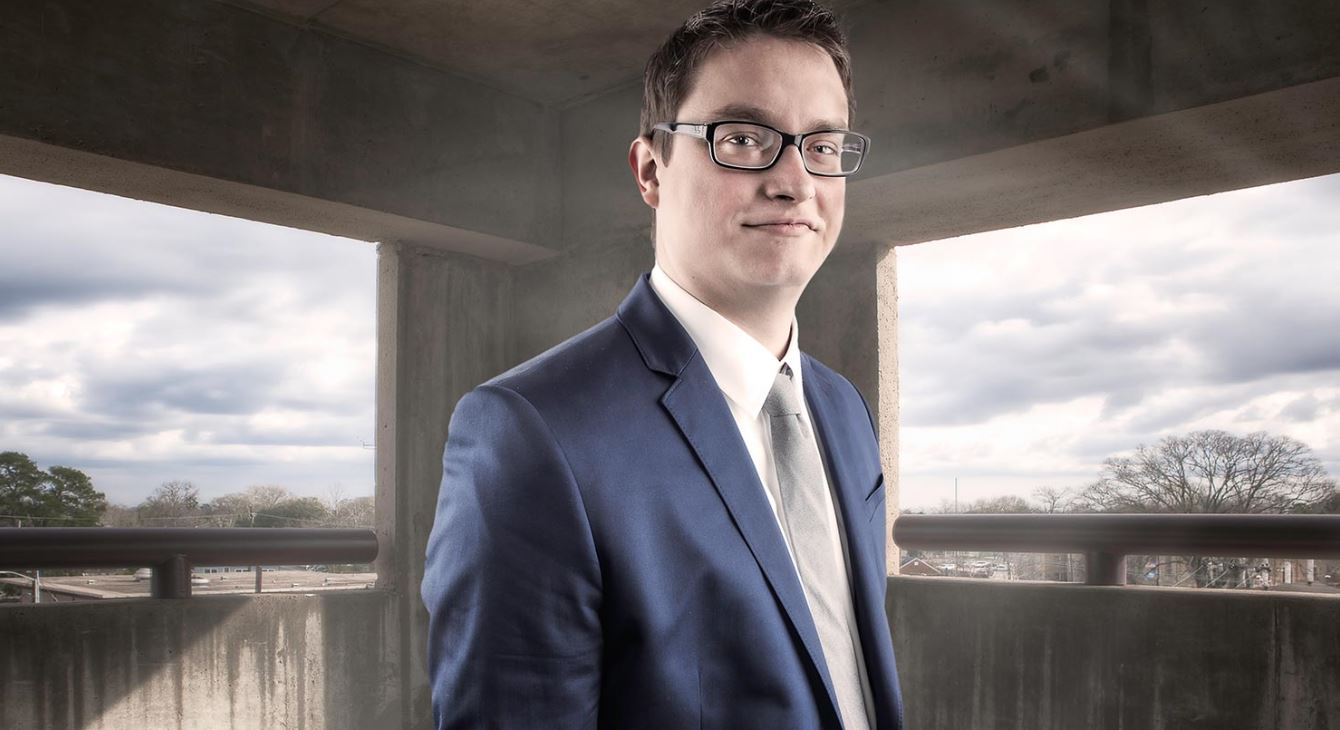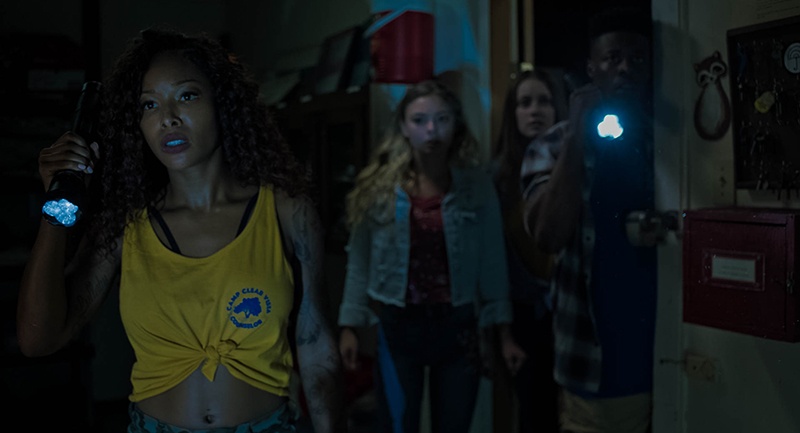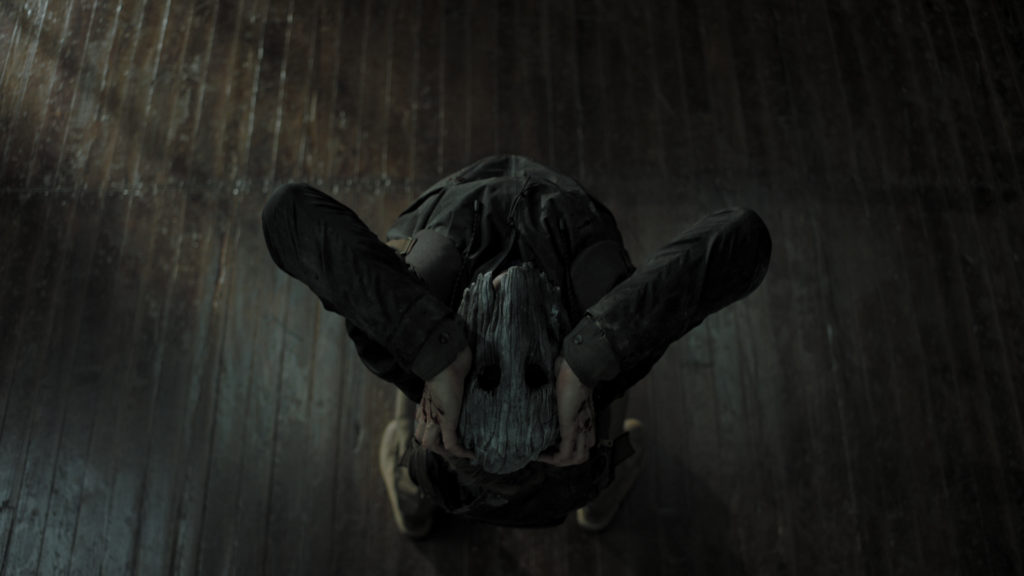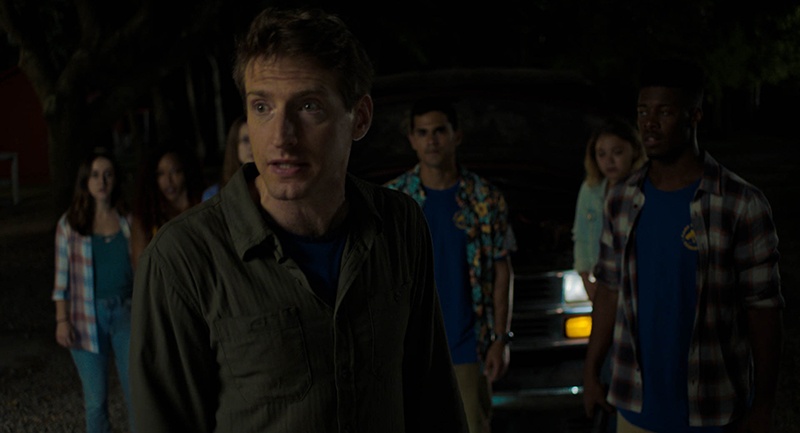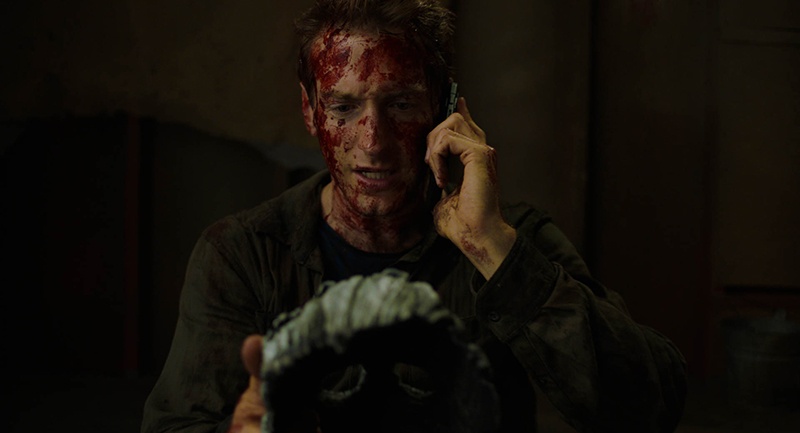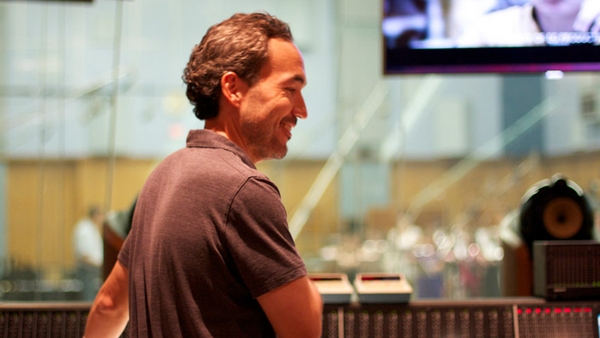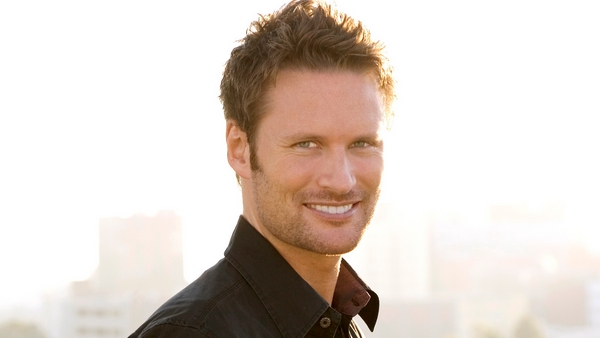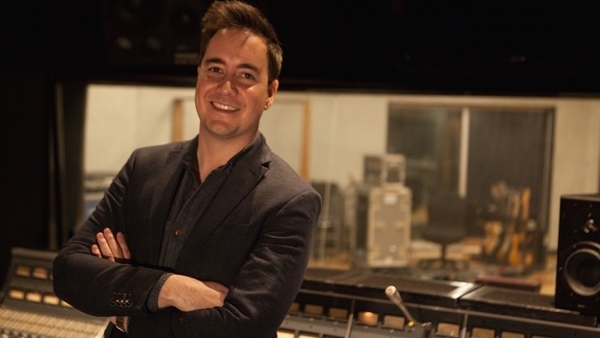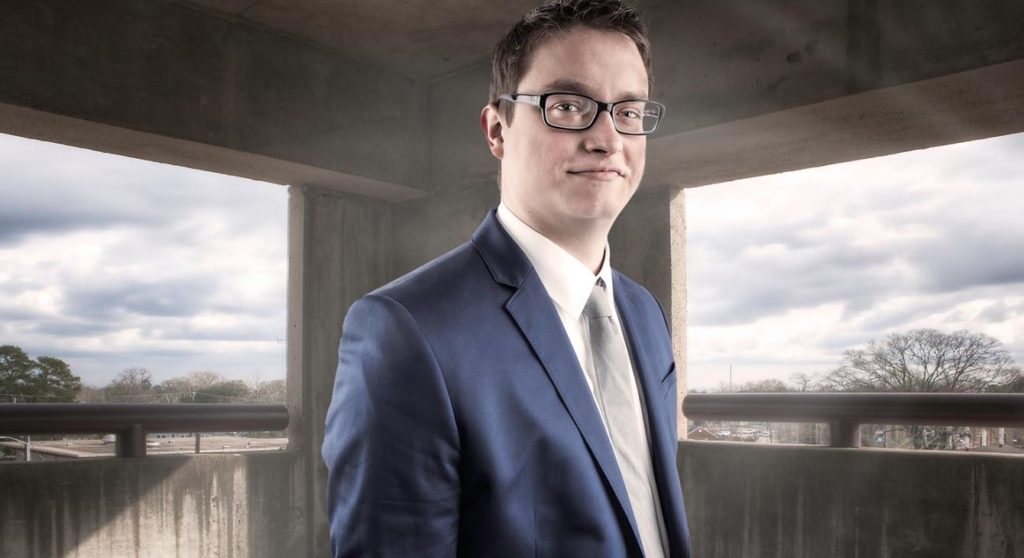 Andrew Morgan Smith is a veteran film music composer who has scored over twenty feature film and television projects. In the last five years, he has scored more than forty-five projects across all media. He has also worked with and provided additional music for Nathan Furst, the composer of Act of Valor and Need for Speed.
Andrew Morgan Smith is a veteran film music composer who has scored over twenty feature film and television projects. In the last five years, he has scored more than forty-five projects across all media. He has also worked with and provided additional music for Nathan Furst, the composer of Act of Valor and Need for Speed.
Smith studied film composition under composer David Newman (Tarzan, Ice Age, Galaxy Quest, The Sandlot), and orchestrator Jack Smalley (Last of the Mohicans, The Mothman Prophecies, The Limey) at the 2010 Aspen Music Festival. As a multi-instrumentalist, he was classically trained in both composition and music media at the University of Louisiana at Lafayette. Smith is proficient in piano, guitar, saxophone, and experienced with the euphonium, trombone, clarinet and flute.
One of the best films to play at Fantastic Fest 2018 was Brett Simmons‘ slasher movie send up, You Might Be the Killer. We loved the film, and in our review we noted that the music really stood out because it had a Predator vibe. In our interview with Simmons, it was confirmed that he asked Smith to provide a score that had the same emotional beats as Predator, as well as walking that horror/comedy line. We were excited to speak with this talented young composer about his work, and it was as much fun as the film itself.
GoSeeTalk: When I spoke to the creative team at Fantastic Fest, Brett Simmons told me that he wanted your score to have a Predator vibe, because of how it mixed some light themes with horror tones. What were your first thoughts when he suggested Silvestri?
Andrew Morgan Smith: Working with Brett, he was really open to me taking his direction and giving
him options and how I would put my spin on it. I couldn’t just copy and paste the score to Predator. [Laughs] But we put in some very intentional homages to it and other genres.
The project was already daunting because it was a horror-comedy which is not always easy. And the film was non-linear which meant there would be a ton of score because you’re jumping around a lot, and you have to constantly reset the audience. The first version of the film didn’t have Predator temped in, so when he gave me the final version he had done, it was very challenging to get past what was giving you that emotion, and then be asked to do the same.
It seems pretty insurmountable listening to 87 world class session musicians, all the while we didn’t have the resources to record that many live musicians. But I think it was a really good touchstone because we were scoring a comedy, and it gave us permission to have fun with it, just like Alan Silvestri did with the light elements of Predator.
I’m surprised to hear there were two temp scores. These days, you can half expect all indie films, especially throwback yarns – like The Guest or Turbo Kid – to automatically have a synth score.
As a composer, I’m a fan of film music, and Brett is a huge film score fan. The first time we met, he specifically said he did not want that. Aside from it being so ubiquitous lately, the main reason, he said, was that it wasn’t exactly how the ‘80s sounded. Just like with Predator, and other action or horror films from that time, those movies had powerful symphonic scores.
Now I watched Stranger Things, and really like the score, but it feels like John Carpenter, and that doesn’t feel like other scores of the time. Brett felt like synths would be the easy option instead of doing something orchestral, and Brett had a different idea in mind. When I think of a synth score, I think of Gremlins. It’s a great score, but a synth score can sound a little bit silly, and at the end of the day they’re not as expressive as an orchestral score might be.
Several old-school horror movies had great orchestral scores, like The Omen and Poltergeist. But you’re right, people have a perception that synths were more dominant 30 years ago, and the symphonic music is more impacting.
I am a huge Jerry Goldsmith fan, and he used synths, but if there was synth, it was a very minor part of it, it wasn’t the only instrument. But, sometimes, the reason that instrument was used was because that was the technology of the time – if you didn’t have money for an orchestra, you had to use synthesizers. On this score, I used my synthesizers of samplers, I didn’t use any live players besides one percussionist.
Wait…you scored this entire film without any professional musicians?
I had to score this movie in three weeks, and it was 66 minutes, so even with loads of money, it would have been difficult to record it live. I like to think that as composers, we try to make creative decisions around our constraints. Think about Rogue One: A Star Wars Story when Michael Giacchino stepped in for Alexandre Desplat. Even on a movie that big, you think that there’s no way he only had three or four weeks, but he did. I’m glad that you like the score, and I like to think that people won’t know we scored the movie in three weeks. All that you know, as an audience member, is how it feels in the movie, and whether it works with the emotions and the action on screen.
Well it felt like a full-bodied orchestra, and I think it’s because of your orchestrations. Whether or not you reverse engineered Silvestri’s palette, I like the heavy strings played against the light strings, those deep horns and plucking strings of the cello. At times, it sounds like 110 players.
I really appreciate that. I was introduced to Brett through our producer Griff Furst because I’ve done a lot of work with him. Griff had suggested that Brett listen to one of my scores, and when we met he told me that, “I know we don’t have a whole lot of money, or a lot of time, so we probably won’t have a score that sounds like this.” So then I said, “Well, there’s no live players on that score, so I don’t know why you wouldn’t be able to.” [Laughs] They had the same issues on that score as they did with You Might Be the Killer.
One of the reasons that Brett wanted to use me was that I really live in that world of orchestral writing, and while they were shooting the movie I was writing theme ideas and workshopping things. I was informed by Brett’s choice of Predator as a temp, but once I had an identity for this, I don’t really go back to the temp. Temps are useful when a director, who isn’t a musical person, can tell me that, “I really like the emotional impact of this moment in the temp.” That will help inform my decision to write music to match how they feel.
In setting up this interview, your agent told me that you’re a couple weeks away from the final mix. So what did we hear with the movie during Fantastic Fest?
The score you heard in the theater is the final score for the movie. The version you heard on the film is my mix which functions differently from what the stand alone score will sound like. I have a relatively small studio and team, so basically everything you hear is me mixing myself as I’m writing and performing each part on my keyboard. When I do an album, I do edits of each track. The score tracks are a conglomeration of things.
For instance, there’s a scene with the counselors talking in front of their van formulating a plan, and the music is very repetitive. It works to picture, but I cut it down to give you the idea of what that was, musically. Instead of hearing it for 30 seconds, you’ll hear it for 10, then I move on to another idea or different part of the track. It’s just not that interesting to listen to a lot of underscore. [Laughs]
The other thing I ran into on one of my other scores is that the dynamic range on a score is so wide. It can go from really quiet moments to a jump scare that’s really loud. The big hits on the opening of the movie are very loud in the theater, and they are intentionally loud. I don’t want someone listening to this in their car, and they have to turn it up really loud because it’s really quiet. Then when the music hits, it hits so loud it scares the crap out of you AND blows your ear drums out. There’s just a different dynamic range that we listen at whenever we listen for enjoyment as opposed to what we listen to or watch to be scared.
What I saw in the credits there were a lot of songs, mostly by HARLØ who sang “You Might Be the Killer” which is an awesome track to close out the movie.
A lot of those songs are used as background music for the comic shop. My assistant, Dan Negovan, wrote additional music and did music editing for me because it was such a fast turnaround time. He helped me do conforms which take the elements in other tracks and make them for a particular sequence.
Maybe this is a trade secret, but if you have a 60-minute score, you’re probably dealing with 30 to 40 minutes of original material, and the rest of the time you are rearranging what you’ve written to fit in to the rest of the picture as needed. That’s why a lot of scores are less than 60 minutes, it’s because you’re repeating yourself – it’s the same themes or ideas, just in different iterations.
On a movie like this, we wanted the score to be very close to picture. Many times, on other movies, you’d hit play on the score, and the film will play out like a montage, but Brett and I are fans of old-school composers who are actually scoring what’s on screen, and the music is very reactive. And that’s because of the style of the movie. But back to the songs, HARLØ’s end title track actually plays in the background of the comic shop, well past the reveal, but it’s just really low.
Where do we hear the track from Dan Negovan?
Dan wrote the music where the counselors drive up to the camp – it’s that ‘60s/’70s grunge rock track. He did that because I didn’t want to take time away from the actual score and he’s a guitar player, so I told him, “It would be great if you could give this a shot and see how it comes out.” And he did a great job.
What’s the backstory about “I’m So Happy I’m Not Dead”? It sounds perfectly meta, just like the film.
My track is a funny story because that song is just a ringtone. Originally, in the temp version, it was “Everything Is Awesome.” It was going to be too much money to license, so, while it was hilarious, we needed something else. We were, again, on a tight time crunch, and originally I asked Justin Shelton, who has other tracks in the movie, to work on it. He said he’d do it, but then he had a scheduling conflict. Then I asked HARLØ if they could do it, but their schedule was full, too. We were coming down to the wire so I said, “OK, I guess I’m making an EDM song today.” [Laughs]
It had to be high energy and happy. “Everything Is Awesome” is a meta reference in that, obviously, not everything is awesome. So I wanted it to be funny because it’s Sam’s ringtone whenever he’s trying to hide from the killer in the beginning of the movie, and then it goes off in his pocket.
I had a singer coming in to record for another movie I’m working on, so I thought I’d just have her record a part on this with me. It was about a half a day, but it was only 15 seconds. Thinking about what the vocal part should be, I thought that out of context it could sound like, “yeah, I’m so happy,” in general, then it’s more referential which is funny when Sam is covered in blood.
I sang the lead part on it, and a few different versions of it, and then Shelby sang on it. Originally I just wanted her voice, but it worked so well with my voice, and I even put an effect on me so it sounds like a woman’s voice. What you’re hearing, which sounds like a choir, is eight parts – four of me and four of Shelby. It’s such a weird addition to the movie, and I’m not sure it’ll work on the soundtrack as a joke.
Well, Michael Giacchino did something similar with Inside Out. After the end credits cue, he put the TripleDent Gum jingle which gets a laugh. I actually think the ringtone plays on the whole “undead counselor” bit as well.
Oh, man. Way more meta than I got with it. But if you want to pretend I’m a musical genius, then I’ll let you run with it. [Laughs] It reminds me of something I thought while working on this. I kept listening to Fran Kranz talking about the character, Steve, saying “Kayak King” over and over. I thought it sounded like kayaking, so I called up Brett and asked, “Hey, did you have Sam say Kayak King because it sounds like kayaking, the activity?” And he goes, “….No.” So I go, “Well, I think you did, and it sounds hilarious.” Then I asked Thomas Vitale, the co-writer, if he did that on purpose, and he said he just liked the alliteration. So now I outed them as not being geniuses. The illusion of them being wordsmith wizards is shattered. [Laughs]
Thanks to Andrew for his time. You can find out lots more about Andrew Morgan Smith at his official site, so click over to hear more samples of his great work.
You Might Be the Killer premiered at Fantastic Fest in September. If you missed it, you’re in luck because it will air on the SyFy Channel on Saturday, October 6 at 7 pm EST (6 pm Central) before going back to the big screen at the Toronto After Dark Film Festival. We’ll update you on the official release date as soon as we find out.
